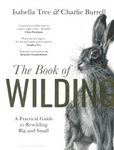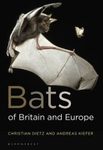"This is a work of enchanting honesty and tenderness; it is as gentle and inspiring to the reader as a falconer is with his hawks. Hines has a deep and lifelong passion for birds of prey, creatures of implacable wildness which have nevertheless lived and hunted with humans for millennia. Full of fascinating detail about the training of raptors, and kestrels in particular, No Way But Gentlenesse is far more than a book on falconry. Rich with history and anecdote, lit with humour and passionate social concern, it gives us new insights into the making of one of our best-loved films. It speaks of love, family, history, and education, and illuminates how an obsession can enrich and shape one's life. Reading it was a true pleasure"
– Helen Macdonald
"Reading Richard Hines's book is like seeing a myth captured and brought to earth [...] Completely absorbing. His descriptions are so vivid you feel close enough to reach forward and touch"
– Peter Carey, Sunday Times
"Richard communicates his passion for falconry and for the landscape of his home town with great warmth. He played a great part in training the three kestrels who played 'Kes'"
– Ken Loach
"It is certainly worth having. And its plain-spoken and unflashy but eloquent account, as its title suggests, of all sorts of gentleness, first to do with the taming of meat-eating raptors, but then also related to Hine's human kith and kin, runs deep into the literature birds and people [...] Hine's sweet title comes from a seventeenth-century falconry manual. And gentleness sweetly pushes through much of this book"
– Tim Dee, Book of the Week, Guardian
"A thoughtful and evocative memoir [...] A must for H is for Hawk fans"
– Sunday Express
"Kes [...] is regularly hailed as a classic of British cinema. But the story behind it turns out to be almost as good as the film itself [...] If the book is, in part, an account of [Barry and Richard's] relationship, at its heart is another, rather more touching bond – the one Richard enjoyed with his kestrels. He has certainly taken his time writing it, but this is a poignant, vividly recollected account of an angry, agonised and apparently earth-bound boy learning, in one sense at least, how to soar"
– John Preston, Daily Mail
"Captivating and inspiring [...] grounded and uplifting, accessible yet aspirational – a pleasurable bend of conflicts that demonstrates the power of nature and the good that comes from nurturing one's passions"
– Publisher's Weekly
"The prose is as honed and svelte as the kestrels themselves, searingly honest, and sharp as a raptor's eye. A poignant life story that will grip you from the first to the very last page, and make you well up with tears and cry with laughter"
– Miriam Darlington, BBC Wildlife
"A moving memoir sheds new light on a celebrated film"
– John Sutherland, The Times
"Poetic, yearning"
– Charlotte Heathcote, Sunday Express
"A powerful evocation of northern working-class life in the Fifties and Sixties [...] This book is never bitter. On the contrary, it is the work of a man who understands that the important things in life require patience and that the most powerful means of persuasion is gentleness"
– Mark Cocker, Mail on Sunday
"No Way But Gentlenesse pulls no punches on the issues of class and entitlement – or lack of – that also made Kes so groundbreaking [...] As [Hines] describes so evocatively in the book, he too was earmarked in early life and by an inflexible education system to a lesser lot in life [...] Falconer or just plain old bird enthusiast, if you can love something that isn't giving very much love in return, perhaps that is the greatest love [...] And if you can set a bird free, as Richard did for the Kestrels immortalised on film, well, even better. Letting go might even be the greatest gentlenesse"
– Conor Jameson, British Birds
"A delightful story of a boy, his birds, and his pursuit of knowledge in spite of society's dictates"
– Kirkus
"Beautifully written [...] throughout Hines' memoir there's a sense of championing the underdog, whether it be the loving attention he paid to his kestrels as a child or the racism he found himself appalled by when he volunteered overseas in Nigeria"
– Yorkshire Post
"The issue of class weaves through the pages [...] A moving story of a man and the bird he loves"
– BBC Countryfile




































